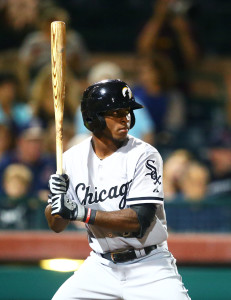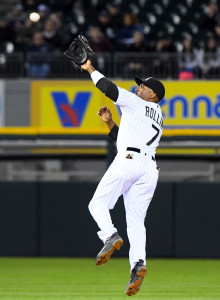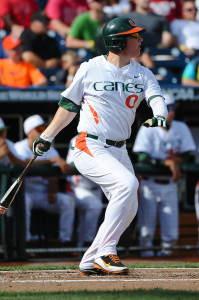Zack Wheeler returning from 2015 Tommy John surgery and replacing Bartolo Colon in the Mets’ rotation, as originally planned, is now far from a sure thing, writes David Adler of MLB.com. Thanks to Colon’s success, “there’ll be a pretty hefty discussion of what’s going to be best for” the Mets’ rotation when Wheeler is set to come back, said manager Terry Collins. The 43-year-old Colon hasn’t shown any signs of his advanced age, having thrown 80 2/3 innings of 3.01 ERA ball and supported that with a 1.45 BB/9. Wheeler could rejoin the team sometime next month, meanwhile, and a six-man rotation is a possibility when he does. “We’ve been [saying] since Spring Training that when Zack gets here, is it the time when we want to add a guy to the rotation anyway, to give guys some time off? Because the days off are going to be a little bit fewer in the second half. Right now I can’t answer where we’d go,” Collins stated.
Here’s more from around the majors:
- The Astros demoted early season slugger Tyler White to Triple-A Fresno on Saturday, tweets Jake Kaplan of the Houston Chronicle. White maintained an OPS above 1.000 for the majority of April, but his production began falling off as the month advanced and continued to plummet in May and June, leading the Astros to send him down. All told, the 25-year-old hit a clearly below-average .211/.296/.386 with seven home runs in 189 plate appearances prior to the demotion. As Roster Resource shows, the Astros are now down to Marwin Gonzalez as their primary first base option. The organization also has highly touted prospect A.J. Reed in Fresno, though he hasn’t produced to expectations in 2016. Former top prospect Jon Singleton hasn’t been great at the Triple-A level this year, either.
- The Nationals are keeping a watchful eye on the amount of innings and pitches 23-year-old right-hander Joe Ross’ racks up, Chelsea Janes of the Washington Post details. Ross has 77 2/3 innings under his belt this year, which is the second fewest among Nats starters. He’s also the only member of their rotation who’s averaging fewer than 100 pitches per start, coming in at 94. Ross amassed 153 2/3 innings between the majors and minors in 2015, and while pitchers often push 200 frames the season after totaling in the 150 range, Janes notes that the Nationals try to avoid that type of one-year jump when dealing with their youngsters. There’s no actual innings limit in place, however, relays Janes (Twitter link). ““His innings are building up, as you can notice, he has the least amount of innings of our starters. We want to take him all the way through September, and hopefully into October,” manager Dusty Baker said of Ross, who has posted a 3.13 ERA, 7.63 K/9 and 2.78 BB/9 this season.
- The Athletics are being careful with injured left-hander Rich Hill as he works his way back from a right groin strain, tweets Connor Letourneau of the San Francisco Chronicle. The 36-year-old threw a 10-pitch bullpen session Thursday, and there’s no word yet on when the improbable ace/trade chip will return. Hill hit the disabled list on June 9, retroactive to May 30, with the ailment.
- White Sox center fielder Austin Jackson underwent surgery to debride and remove a portion of the medial meniscus in his left knee Friday, according to Colleen Kane of the Chicago Tribune (Twitter link). Jackson – who went on the DL with a meniscus tear on June 10 – will be on crutches for two more weeks and will undergo a reexamination in four weeks, per Kane. Jackson batted a weak .254/.318/.343 through 204 PAs before the injury. In his stead, the free-falling White Sox have opted for J.B. Shuck in center lately.



